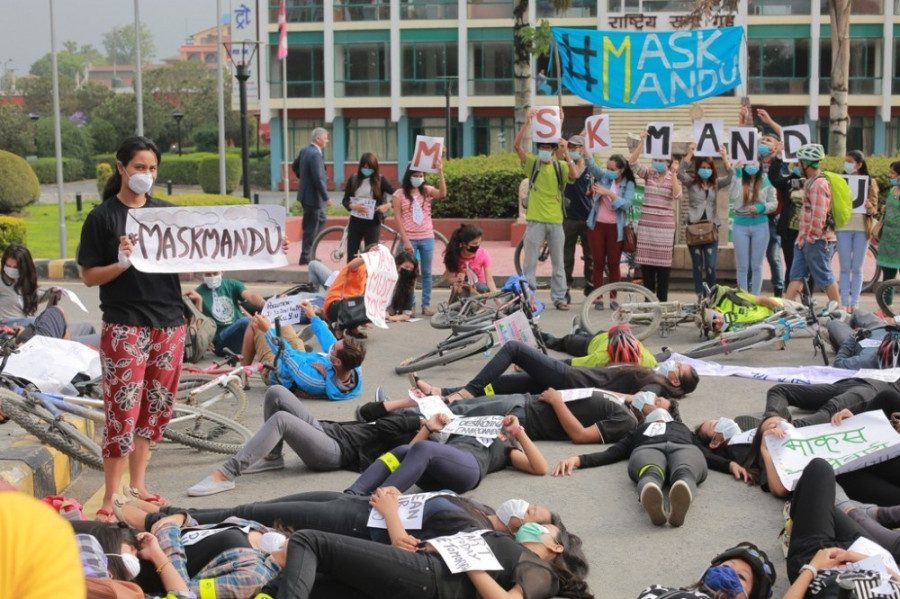National
Cloth masks are not very effective, study reveals
Scientists have warned that cloth masks worn by people with a hope to reduce their exposure to air pollution are not as effective as they think and are giving the users a false sense of security.
Garima Chaulagain
Scientists have warned that cloth masks worn by people with a hope to reduce their exposure to air pollution are not as effective as they think and are giving the users a false sense of security.
A recent study conducted on various types of masks used in Nepal by a team of researchers at the University of Massachusetts in Amherst, in the United States, suggests that “wearing cloth masks reduces the exposure particulate matter to some extent,
but the most commonly
used cloth masks perform poorly when compared to alternative masks available on the market”.
Researchers at the University, including Kabindra Shakya and Richard Peltier, believe that this is the first kind of study that rigorously tested washable cloth masks, disposable surgical masks and more sophisticated N95 masks.
Washable cloth masks are widely used in developing countries, including Nepal, India and China, for personal protection against airborne particulate matter.
In a series of experiments, three different types of facemasks were tested against laboratory-generated particles of five different sizes considered harmful to human health under well-constrained laboratory conditions and using the state-of-the-art instruments. They were tested for their effectiveness in filtering out five different synthetic aerosol particle sizes plus three particle sizes of
diluted whole diesel exhaust, which simulated real-world conditions.
Among these masks, the one with exhaust valves performed fairly well, removing 80-90 percent of synthetic particles and about 57 percent of diesel exhaust. Plain cloth masks were “only marginally beneficial” they said, in protecting people from particles smaller than 2.5 micrometres, often considered more harmful than larger particles because they can penetrate the lungs more deeply. The research showed that all masks performed worse for diesel combustion particles compared to single-sized
particles.
“The least effective were two cloth masks which are also inexpensive, washable and reusable. They are widely used in developing countries, implying they are a
popular consumer choice where pollution mitigation
is warranted,” the report reads, adding, “As a widely used public health intervention strategy, especially across the developing world, great care must be given in selection of inexpensive cloth masks for exposure reduction efforts.”
The Kathmandu valley suffers from serious air pollution problems, mainly from particulate matter, where PM2.5 is 5-7 times higher than the guidelines provided by the World Health Organization, according to a recent study by the Nepal Health Research Council.
The Valley residents should choose at least surgical masks and make sure that the mask fits well and tight around nose and mouth, the new study suggests, if they are to protect themselves from exposure to harmful air pollution.




 8.39°C Kathmandu
8.39°C Kathmandu














